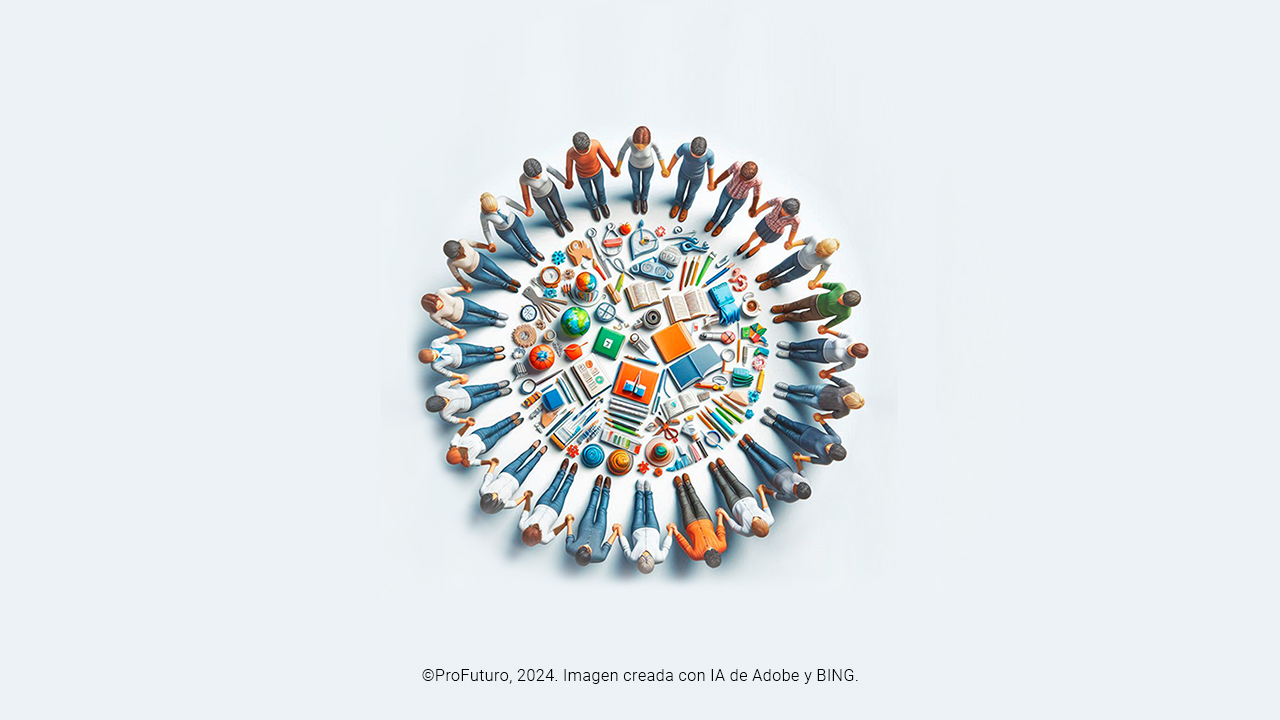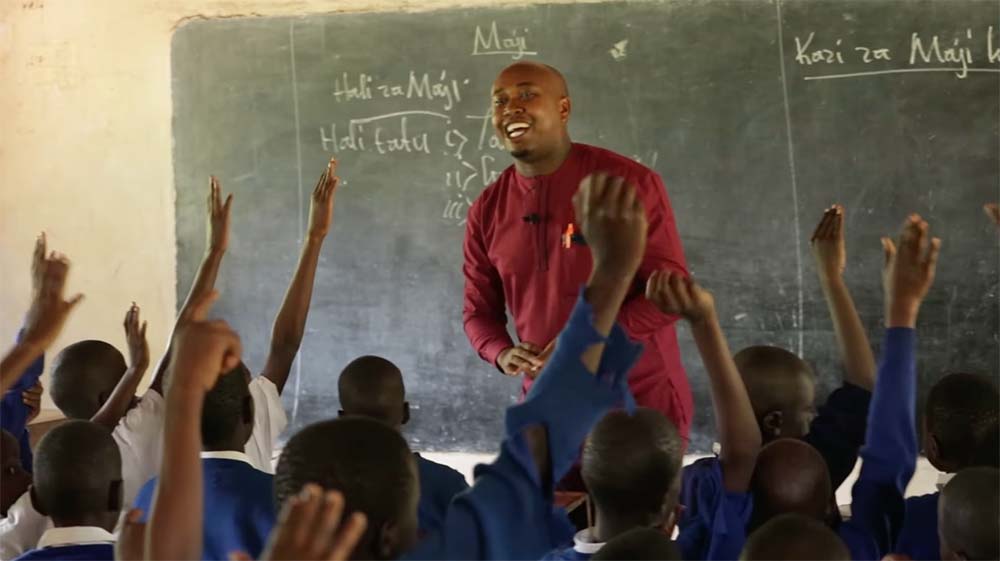Every October 5th, World Teachers’ Day is celebrated in commemoration of the 1966 ILO and UNESCO Recommendation concerning the Status of Teachers. This recommendation advocates for national and international actions to address the global teacher shortage, improve their professional, social, and economic conditions, and promote continuous teacher training and development.
In 2023, UNESCO and the Teacher Task Force (TTF) published the World Teachers Report: Addressing the Teacher Shortage, which, despite progress in professionalizing teaching, reveals a landscape of challenges similar to those described in the 1960s. According to the report, there is a global shortage of over 44 million teachers needed to meet universal primary and secondary education demands. Additionally, the profession faces high turnover and attrition rates, insufficient wages compared to similar professions, limited training in information technologies, and teachers with strong commitment but dissatisfaction with pay and social recognition.
How can we design educational interventions that drive teacher professionalization, enhance their digital skills, and revolutionize teaching practices? Let’s take a closer look.
Rethinking ProFuturo’s Open Model

The ProFuturo Open Model is a comprehensive initiative offering training to teachers worldwide through both in-person and online formats. With a focus on digital learning, this approach promotes training in educational innovation, leadership, communication, and pedagogical planning. In terms of reach, in Latin America and the Caribbean alone, ProFuturo’s large-scale model has certified over 1.1 million teachers, approximately 16.3% of all teachers in the region, demonstrating the impact and breadth of its educational offerings.
The ProFuturo Open Model stems from the understanding that teachers, especially in vulnerable settings, face multiple barriers that limit their professional development. These challenges include inadequate school infrastructure, the absence of institutional frameworks promoting continuous training, the lack of adequate programs for developing digital skills, excessive workloads, and, in some cases, resistance to technological change. These conditions not only widen the professional development gap among teachers but also create inequalities among students—some have access to better-trained teachers and appropriate infrastructure and technology, while others do not.
In this context, the primary challenge for the ProFuturo Open Model is the limited development of teachers’ digital competencies, which is essential for effectively integrating technology into teaching and learning processes. Without these competencies, teachers struggle to adapt to the demands of digital-era education and to meet students’ needs.
How can an organization as complex and globally present as ProFuturo align priorities, purposes, and develop an effective approach to tackle these challenges?
Collaborative models offer spaces to bridge the gaps between research, innovation management and pedagogical practice.
A Community that Communicates and Designs: ProFuturo’s Networked Improvement Community
Multilateral organizations, philanthropic entities, and international foundations implementing educational programs across diverse contexts face highly complex challenges when designing intervention models that are effective, relevant, and meaningful for teachers with varied needs. Addressing these challenges requires recognizing the complexity of the task—resolving tensions that arise from coordinating multiple stakeholders to align agendas, priorities, approaches, and resources. Additionally, it demands securing the financial and human resources necessary to implement and monitor efficient management systems. Equally crucial is maintaining smooth communication and clear decision-making processes among those responsible for executing educational programs. However, cultural, linguistic, and organizational differences can hinder these objectives and affect decision-making processes.
In education, a strategy that has proven effective in addressing such complexity is the collaborative design of models that bridge the gap between research, innovation, and pedagogical practice. Along these lines, Networked Improvement Communities (NICs) provide a space where researchers, designers, implementers, and educators collaborate to find solutions to priority educational challenges. Using rapid improvement cycles, NICs focus on defining objectives, evaluating changes, and seeking effective implementation strategies.
The creation of a Networked Improvement Community at ProFuturo, with representatives from the Latin American team responsible for implementing the Open Model, has enabled a shift from issues centered on decision-making processes and the lack of consensus regarding program strategy and scope toward an approach that centers on the opportunities and barriers for teacher professional development. Through these community work sessions, emphasis has been placed on the limited development of digital competencies among teachers, which affects their capacity for innovation and their ability to effectively integrate technology into teaching-learning processes.
Based on this assessment, one key objective for the Open Model is to transform teaching practice by strengthening digital and pedagogical competencies, enabling teachers to effectively integrate technology and develop educational innovations adapted to their diverse teaching contexts.
What types of educational actions, supported by research, foster professional teacher learning? How can intervention models be designed that leverage this knowledge?
Toward a Theory of Change for Teacher Professional Development
Since the call over 50 years ago by the ILO and UNESCO to strengthen collaboration between researchers and teachers, the research field has grown exponentially, expanding knowledge on the most effective mechanisms for teacher professional development. This growth has helped identify core principles, among them the importance of focusing efforts on strengthening pedagogical practice through new teaching techniques that broaden teachers’ instructional repertoire.
Professional training should integrate collaborative inquiry and reflective practice within groups of teachers. These collaborative practices should aim to enhance feedback dynamics, creating spaces where teachers can improve based on their specific needs and challenges. Moreover, evidence shows that when teachers have access to social support networks and expert guidance, professional development programs become meaningful and highly effective.
A Reflective and Design-Oriented Community
The Improvement Community created to rethink the scope and effectiveness of ProFuturo’s Open Model has provided a space for mutual learning and exchange, gradually identifying areas for program improvement with a focus on digital capabilities, opening pathways to respond to today’s teaching profession challenges. We are confident that this collective effort will significantly impact the design of new training opportunities that will expand and enhance professional development options for all teachers, attending to their specific needs and considering the contexts in which they practice.
Our gratitude goes to the ProFuturo colleagues who, over recent months, have shared their experiences, ideas, and expertise to rethink the Open Model: Olga Angélica Alarcón, Enrique Javier Alvarado, Gina Biasini, Gustavo Blanco, Michelle Bettine, Juan Bevaqua, Nidia Chávez, José Manuel Carrillo, María José Caro, Karina Daidone, María Fernández, Mónica Hernández, Carlos Alberto Hernández, Yennifer Hernández, Diana Hincapié, Irene Jiménez Flor, Ana Mancera, Ana María Moreno, María Noel, Lilian Moore, Ana Daniela Naranjo, Beatriz Ríos, Marina Sanz, Iris Santos, Martín Torres, Yurani Alexandra Gutiérrez Torres, José Carlos Vásquez, Rodrigo Loayza, María Dolores Martínez, Valentina Ríos, Virginia Soto, Milada Tonarelli, Raquel Valencia, Enrique Vázquez, and Alejandro Zamora.






